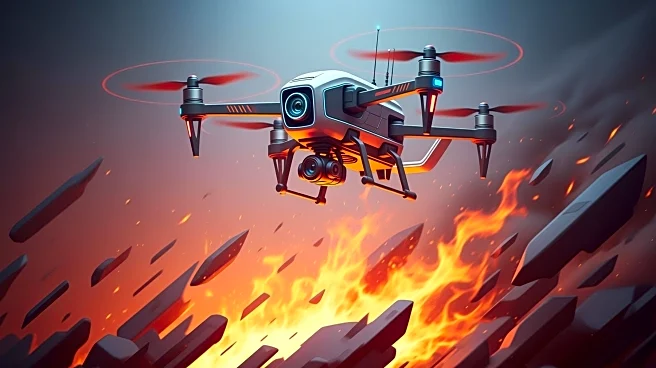What's Happening?
Seneca, a startup focused on autonomous aerial systems, has raised $60 million to advance its fire suppression technology. The company aims to use artificial intelligence to detect and combat fires early, extending the reach of firefighters and utilities
in challenging situations. Seneca has demonstrated its product's capabilities in live fire scenarios and collaborated with fire agencies across four states. The founding team includes Nick Foley, Bill Clerico, Adrian Aoun, and David Glazer, who have worked closely with fire leaders such as Chief Dan Munsey and Chief Brian Fennessy. The funding round was led by Caffeinated Capital and Convective Capital, with participation from several other venture firms.
Why It's Important?
The development of AI-driven fire suppression drones by Seneca is significant due to the increasing intensity of wildfires, which have tripled over the last two decades. These fires have caused substantial economic damage, estimated at $1 trillion annually, and have devastated communities and natural landscapes. Seneca's technology promises to enhance firefighting efforts, potentially saving lives and reducing economic losses. The investment will enable Seneca to improve its systems and deploy them in the field by the 2026 fire season, offering a proactive solution to a growing problem.
What's Next?
Seneca plans to use the newly acquired funds to enhance its drone capabilities, increase production, and deploy the first systems during the 2026 fire season. The company aims to provide immediate value to firefighting efforts, potentially transforming how wildfires are managed. As the technology is rolled out, it may prompt further investment and interest in AI-driven solutions for disaster management, influencing public policy and industry standards.
Beyond the Headlines
The use of drones and robotics in firefighting represents a shift towards more technologically advanced methods of disaster management. This development raises ethical and legal questions about the reliance on autonomous systems in critical situations. Additionally, startups in this sector face challenges due to their dependence on government funding, which can be affected by policy changes. The success of Seneca's technology could lead to broader adoption of AI in emergency response, impacting how resources are allocated and managed.
















